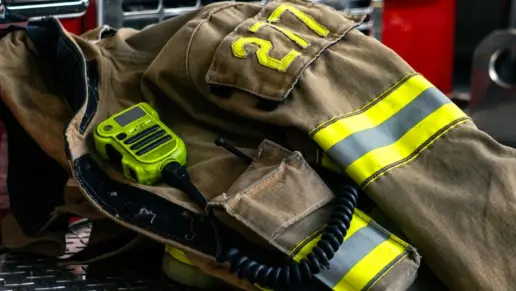Addiction support groups are an essential part of the addiction recovery process. Support groups come in several formats and are different from group therapy. These include 12-Step groups, non-12-Step groups and those specific to various populations.
The typical format of a group depends on several factors, but you can expect a safe and open environment to share your addiction journey with others who are also recovering.
Addiction Support Groups Key Facts
- Support groups are peer-led, while therapy groups are led by professionals.
- Support groups are often offered while in treatment and are recommended as part of the aftercare when leaving rehab.
- 12-step groups involve spirituality, while non-12-step groups are secular in their approach.
- Support groups also exist for family members of those going through addiction treatment.
- In-person and online support groups exist.
- Support groups are completely confidential spaces that protect your identity.
What Are Addiction Support Groups?
Addiction support groups are usually part of recovery for those in treatment for substance use disorder. They play a specific role in the recovery process.
Definition & Core Purpose
Addiction support groups are peer-led groups that allow you to share your recovery experiences with others going through a similar journey. The mutual-aid model helps build empathy among the group. Since everyone is on a similar life path, it allows for a nonjudgmental and confidential space to share openly.
These groups are meant to complement professional care.
Where They Fit in the Continuum of Care
Support groups are sometimes offered while in clinical treatment and are often used as bridges to aftercare when leaving detox, inpatient or intensive outpatient programs.
Aftercare plans typically incorporate relapse-prevention tools to ensure your recovery continues. Support groups provide that extra touchpoint of accountability and a sober social network.
Addiction Support Groups vs Group Therapy
There are some differences between group therapy and support groups.
Group therapy is:
- Facilitated by a licensed professional
- Billable to insurance
- Goal-centered and objective-driven
Support groups are:
- Led by volunteers who’ve most likely been or are currently on their recovery journey.
- Funded by donations and therefore free to participants.
- Focused on shared stories rather than a specific goal or objective.
12-Step Support Groups
Some commonly known support groups fall into the category of 12-step groups. While there are different 12-step groups, they all follow the same general approach that emphasizes admitting powerlessness over addiction and seeking a higher power to help achieve growth.

Confidentiality is an important aspect of these groups, and participants use first names only.
The first 12-step group was Alcoholics Anonymous (AA), formed by Bill Wilson and Dr. Bob Smith. Wilson formed the program after going through recovery for alcohol addiction himself. Some steps include:
- Admitting powerlessness over the addiction
- Seeking a higher power for help
- Taking moral inventory
- Making amends for past wrongs
Alcoholics Anonymous (AA)
AA was the first established 12-step group and focuses the group discussions around recovery from the misuse of alcohol.
Narcotics Anonymous (NA)
NA follows the same 12 steps that AA follows, but its focus isn’t solely the misuse of alcohol. It includes other substances, such as opiates, stimulants and cannabis.
Cocaine Anonymous (CA)
CA also follows the same 12 steps, but shifts the focus to cocaine use specifically over other substances.
Non-12-Step Groups
The main difference between 12-step groups and non-12-step groups is its use of spirituality. While 12-step groups incorporate an element of spiritual growth and involve a higher power in the recovery process, non-12-step groups focus on evidence-based models for their structure.
SMART Recovery
SMART Recovery is a type of support group that focuses on self-empowerment. The acronym means “self-management and recovery training.”
A facilitator is often a licensed counselor and leads each group and guides everyone through a four-point program. SMART bases its four points on motivational enhancement therapy and cognitive behavioral therapy (CBT). SMART Recovery also has an online community and several web courses.
LifeRing Secular Recovery
LifeRing Secular Recovery is an anonymous abstinence-based organization that provides a confidential and non-judgmental space where you can experience recovery conversations with your peers. LifeRing uses a 3-S philosophy of sobriety, secularity, and self-help.
Moderation Management
Moderation Management is a non-profit organization that isn’t abstinence-based. They instead help you drink in moderation. “Responsible Drinking” is the MM guidebook to moderate drinking. The workbook format allows you to complete the exercises to help identify why you drink and develop a plan to drink less.
Specialty Support Groups
Aside from 12-step and non-12-step groups, there are many different specialty support groups. They’re based around specific needs or preferences based on culture and lifestyle differences.
Women for Sobriety
Women for Sobriety is the first peer support group created specifically for women who are recovering from substance use disorders. The support group program follows 13 acceptance statements that aim to help you change the way you think and approach recovery.
Gay & Sober
Gay & Sober is a 12-step-based nonprofit organization that serves LGBTQ people in recovery from alcoholism and drug addiction. They host health and wellness events and offer free recovery resources all year long.
Young People in Recovery (YPR)
YPR is a nonprofit organization that provides peer recovery services to youth and young adults who have substance use disorder. YPR utilizes all pathways to recovery, including 12-step, faith-based, harm reduction, and medication-assisted treatment (MAT).
Warrior PATHH
Warrior PATHH (Progressive Alternative Training Helping Heroes) helps combat veterans and first responders recover from traumatic experiences. This non-pharmacological program is administered by a network of veteran service organizations.
They provide training, accountability and connection through an initial 7-day intensive initiation followed by three months of ongoing support. It lasts 90 days total.
Profession-specific
If you think you would benefit from sharing stories with those in your line of work, some groups exist for specific professions. These groups include:
- Lawyers Concerned for Lawyers (LCL)
- Nurses in Recovery
- Pilot Peer Support (PPS)
Support Groups for Family & Friends
You can explore support groups for family members and friends of those with substance use disorders. These groups focus on the unique experiences of those who are impacted by loved ones with addictions.
Al-Anon
Al-Anon is a peer support group for friends and family members of those who have an alcohol addiction. This group follows the same 12 steps as AA and allows participants to share stories of their journey and receive support from other members.
Nar-Anon
Nar-Anon has the same structure as Al-Anon, but it’s open to friends and family members of people with any kind of substance misuse, not just alcohol.
Parents of Addicted Loved Ones (PAL)
PAL is a peer support group for parents of children with addictions. They offer free weekly meetings that use evidence-based practices designed specifically for parents by professionals in the treatment and recovery industry.
Mothers in Recovery
These support groups are specifically for moms who are battling addiction. You’ll meet with other mothers with similar experiences and gain education and tools on how to best continue your recovery journey.
Faith-Based Support Groups
While 12-step groups do incorporate spirituality, they do not go into any specific faiths or religions. Other faith-based support groups are tailored towards specific religions.
Celebrate Recovery
Celebrate Recovery is a Christian program established by a pastor in California who wanted to provide a Christ-centered ministry where people could find freedom from their hurts, hang-ups and habits. These support groups can include support for addictions as well as many other issues people face.
Recovery Dharma
Recovery Dharma is founded on and inspired by Buddhism. It’s a peer-led movement and community based on the trust in the potential of each individual to recover and find freedom from the suffering of addiction.
Jewish Alcoholics, Chemically Dependent Persons and Significant Others (JACS)
JACS is a volunteer and mutual-help organization dedicated to encouraging and assisting Jewish people with addictions to substances. They also feature support to their families and friends.
Online Support Groups
If you’re not sure you have the access or capability to attend a support group in person, many online support groups exist as well. Check with each group below to see if they offer online meetings as well as in-person ones. Some groups exist exclusively online.
In the Rooms
In the Rooms is a global recovery community that offers a wide array of online support group meetings. Groups range from 12-step programs to more specialized groups and even other mental health-related meet ups that may be beneficial to someone with a dual diagnosis involving drugs and mental health conditions.
Reddit Recovery Communities
The social media site Reddit offers some online recovery communities, including:
- r/stopdrinking
- r/REDDITORSINRECOVERY
Recovery Apps
Several apps can help individuals along their recovery journeys. Some popular ones include:
- I Am Sober
- Nomo
- Recovery Path
- SMART Recovery
- WEConnect
Meeting Formats & What to Expect
Meeting formats for addiction support groups vary depending on a few factors. Consider the location, in-person vs. virtual formats, and closed vs. open meetings. However, you can expect some typical agendas found in many support groups.
In-Person Meetings (Open vs Closed)
If you’re attending an in-person support group, you either experience open or closed meetings. Open meetings welcome observers who may not necessarily be in recovery but would like to observe a group. Closed meetings are limited to those with desires to end their addictions.

In-person meetings are often held in churches, community centers or treatment facilities.
Virtual / Hybrid Meetings & Telehealth
Many support groups offer virtual meetings for those who can’t attend in person. These meetings use video platforms to allow a wider range of access and can provide more anonymity if you prefer to join using audio only. Further anonymity is available if you engage in the chat function and don’t use your voice at all.
Hybrid meetings are also available where some participants are physically in the room together while others join remotely via a microphone and screen in the room.
Typical Agenda
The specifics of a meeting agenda vary from group to group. But there are a few things you may generally expect at a peer support group:
- A “preamble” of sorts that kicks off the meeting
- Readings from the volunteer leader or other participants
- Timed sharing for group members to speak
- Chip celebrations for those who’ve earned certain markers in their sobriety
- Announcements
- Passing a basket for voluntary contributions
Key Roles: Facilitator, Sponsor, Peer Mentor
Some key roles exist in addiction support groups.
- Facilitators are volunteers who run the meetings. This role is sometimes referred to as the group’s “chair” and is responsible for keeping the meeting on track and running the agenda.
- Sponsors are fellow group members who offer 1-to-1 guidance for newer members as they navigate their way through program steps.
- Peer mentors offer similar support as sponsors, but more emotional and life-path support as opposed to advice on the recovery program specifically.
- Many group members have service commitments, such as helping set up for meetings or clean up afterwards. These types of commitments help to build buy-in and ownership from each member.
Confidentiality, Anonymity & Etiquette
An important aspect of support groups is the confidentiality, anonymity and etiquette of group meetings. Confidentiality is enforced by stating rules such as “who you see here, let it stay here.” Many groups use first names only as a way of ensuring as much anonymity as possible.
Group etiquette often involves rules like no crosstalk or giving unsolicited advice to other members during open share times. This allows for a nonjudgmental and safe atmosphere for sharing.
Frequently Asked Questions
Many new members are often nervous when signing up for a group. They want to make sure they’re a good fit with their peers. Here are some common questions posed when investigating support groups.
Yes. Addiction support groups are free for participants. Most groups operate on voluntary donations, which means you may be allowed to donate during a group meeting. However, no dues or fees are required to attend.
Yes. You can still attend an addiction support group even if you’re still using the substance of addiction. The only requirement for attending groups is a desire to stop using. Many participants honestly share about their continued use in group meetings, and you’re encouraged to be forthcoming about substance use as well.
If you’re uncomfortable with the spiritual language used in 12-step support groups, secular options are available. However, even in 12-step programs, the concept of accessing a “power greater than self” is defined by the individual and doesn’t have to fit into any specific spiritual or religious contexts.
Addiction support groups are extremely confidential. The tradition of anonymity and confidentiality is deeply ingrained in these communities, and breaches are very rare. The importance of keeping things private is spoken about regularly and upheld by group members.
How often you attend addiction support groups depends on where you are in your recovery. If you’re in the early stages, it’s recommended you attend 90 meetings in 90 days. As you progress, you can adjust your attendance based on varying factors such as when triggers to use arise and what your schedule allows.
Many people have succeeded in recovery with the help of addiction support groups. However, they’re only one part of addiction treatment when you look at it as a whole. Coupling support groups with individual therapy and inpatient or outpatient treatment significantly increases the chances of success.
Find Support Groups Near You
There are a few different ways you can find treatment near you. Rehab.com offers a directory that allows you to filter by location, level of care, insurance and special programs. You can also see top-ranked centers in your area based on the rehab scoring methodology used.
Not sure where to start? Call the number below to talk to someone about your treatment options and see if your insurance covers rehab.
Call A Treatment Provider
For a conversation about what treatment options are available to you.
Make a Call
Nearby 12 Step Rehab Programs
Finding facilities near you…





